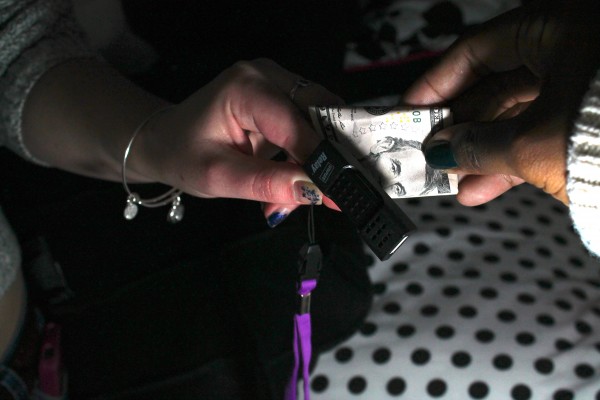Professors Comment on Plagiarism at Fordham
November 14, 2013

After 2016 presidential hopeful Rand Paul admitted earlier this week that he was at fault for the plagiarized material used in his speeches, articles and books, professors comment on plagiarism.
“I’ve had cases of plagiarism every year,” Bryan Frances, associate chair of the philosophy department at Fordham College Lincoln Center (FCLC), said. “So I talk about it in class and I’ve put into place an extreme policy: any plagiarizing, even one sentence, means an automatic ‘F’ for the entire course, no matter what the circumstances. Ever since I put that policy in place, I haven’t had problems with plagiarism.”
Other professors, however, say that plagiarism isn’t something they see much at Fordham.
“I’ve encountered rare occasions of plagiarism during my tenure at Fordham, but nothing earth-shattering,” Doron Ben-Atar, former associate chair of the history department at FCLC, said.
“In my nearly two decades [at FCLC] I’ve personally caught only two students plagiarizing. And I caught it early in the semester, warned them, and it did not reoccur. When I was chair of the entire history department at both campuses, I came across two other cases, both at Rose Hill. Those led to an F in the course and a procedure involving the deans. Given the many thousands of students who’ve taken history classes at Fordham over the years, this low number suggests that the problem is very minor,” Ben-Atar said.
Writing Director and Associate Professor of English at FCLC Anne Fernald said that she has also had only limited experience with plagiarism at Fordham, but that it is still important to teach students about why it is wrong and how to avoid it while writing.
“I think it’s huge to orient people about the problem of plagiarism because it’s so easy right now that it doesn’t feel like a crime,” Fernald said. “When you had to type a paper you would be very conscious if you were copying someone else’s writing rather than writing yourself. Everything now is pasting and clicking and copying and the experience of copying a quotation for a legitimate block quote isn’t that distinct from plagiarizing in a paper.”
Although all three professors agree that harsh penalties are necessary when students commit plagiarism, there is some debate about what, if anything, can be done to prevent academic dishonesty before it happens.
“I do not know other methods that work,” Frances said, who outlines his zero-tolerance policy in the syllabus for all of his courses. “Some teachers have students sign an ‘I won’t plagiarize’ letter, but my guess is it has limited influence.”
Fernald said she believes that reaching students on a moral level before violations occur can also be effective.
“We really have to spend more time talking about the ethics of [academic dishonesty] in class. That’s been the push that I’ve made—to talk about why we value people’s ideas and why we want students to give credit to other people for their ideas as well as why we’re interested in the students’ ideas even if their ideas may not be perfect because that’s why they’re her:, to get an education, to show us their ideas and their progress rather than copying quote-unquote ‘better’ ideas from a professional publication.”
Frances’ syllabi also encourage students to do their own work because of what they’ll gain from the process.
“Having to think for extended periods of time at such a high level has a permanent beneficial effect on your powers of reasoning, as ambitious as that sounds. Plagiarizing takes away from that effect, thereby making the course much less valuable,” the syllabus states.











